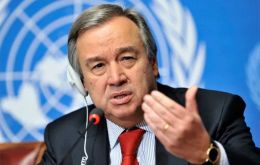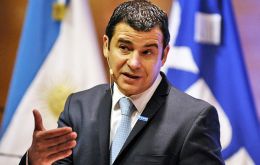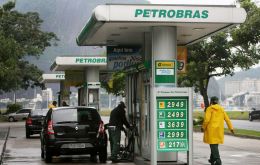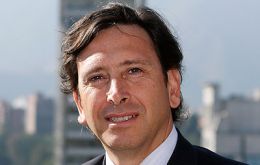MercoPress. South Atlantic News Agency
Tag: gas price
-
Friday, March 17th 2023 - 00:20 UTC
UN chief Guterres accuses oil and gas companies of making “immoral profits”

UN Secretary-General Antonio Guterres accused oil and gas companies of making “excessive” profits from the energy crisis sparked by the war in Ukraine, calling it “immoral.” Guterres, releasing a UN report on the consequences of Russia's invasion of Ukraine, urged governments to tax the companies' earnings.
-
Thursday, October 11th 2018 - 08:45 UTC
Macri administration reverses latest cooking gas price increase following public outrage

Argentina will pay for unforeseen increases in the cost of cooking gas following public outrage and opposition in Congress to stymie the plan which would have seen consumers paying increased gas prices in 24 installments from January 2019.
-
Thursday, July 23rd 2015 - 08:58 UTC
Discouraging outlook for commodities this year confirms World Bank

The outlook for commodities remains grim for this year, except that oil will fall a bit less than previously forecast, the World Bank said. Average prices for fuels such as crude, natural gas and coal will tumble 39% from 2014, while those for materials like metals and fertilisers will fall about 12%, the Washington-based lender said in its quarterly “Commodity Markets Outlook” released Wednesday.
-
Monday, September 15th 2014 - 05:11 UTC
Gas prices must increase to sustain strong investment levels, says YPF Galuccio

Argentina's YPF oil and gas state corporation CEO Miguel Galuccio pointed out that the increase in gas prices is needed in order to sustain “strong investment levels” for the company and revealed that the cost of drilling a well in the country's massive oil field in Vaca Muerta has fallen below 7 million dollars.
-
Thursday, November 28th 2013 - 10:26 UTC
Rousseff reluctant to increase fuel prices fearing inflation and social unrest

Brazilian president Dilma Rousseff is reluctant to allow the country's oil corporation Petrobras to increase the price of fuels this year, which would have an immediate impact on gasoline, transport and inflation, according to Folha de Sao Paulo.
-
Monday, April 11th 2011 - 20:52 UTC
January’s gas rates conflict in Punta Arenas takes its toll: governor resigns

Governor Liliana Kusanovic, from the extreme south Chilean Magallanes region has resigned alleging the need to care for family affairs and denying any link with January’s gas prices strike which paralyzed the region for a week. Ms Kusanovic’s resignation, which belongs to the ruling coalition, was accepted and made public Monday.
-
Tuesday, January 18th 2011 - 01:15 UTC
Chile: “Zero readjustment” is not a viable option to resolve conflict due to gas price increase

Energy and Mining Minister Laurence Golborne insisted on the last proposal made by the Chilean government to stop manifestations which would imply a 3% increase in hydrocarbon.
